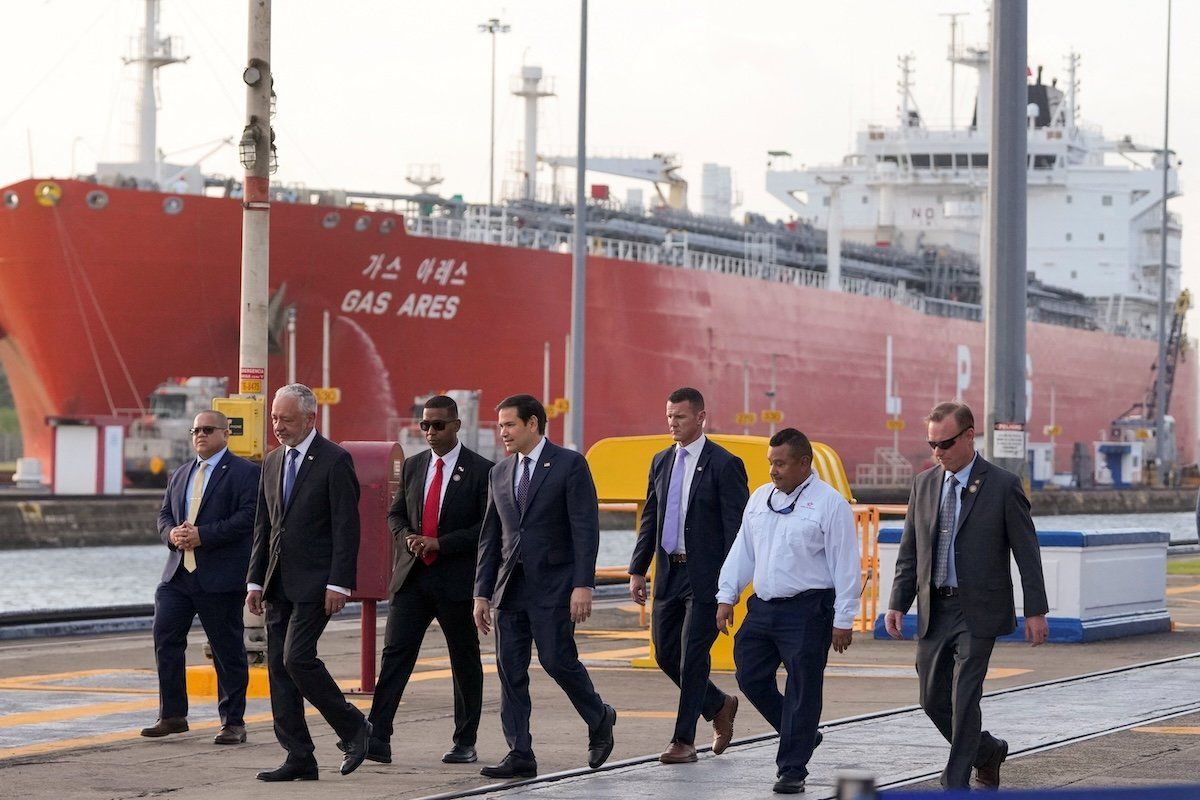Panama has said it won’t renew its membership in China’s “Belt and Road Initiative,” a global infrastructure financing program that has expanded Beijing’s influence.
The announcement followed a Panama visit over the weekend by US Secretary of State Marco Rubio, whose boss, Donald Trump, has threatened to retake control over the Panama Canal for months. Trump alleges that China is “operating” the waterway and that it is unfair for US ships to pay the same standard tolls as others.
The background: The US built the canal in the early 20th century and controlled it until 1999, when it was handed over to Panama. In recent years, China has invested in Panama’s infrastructure, and a Hong Kong company leases ports at either end of the waterway. Last week, Panama launched an audit of that company.
Panamanian authorities run the waterway, but China’s growing presence has caught Trump’s eye. He views the canal – which handles about 5% of global trade – as a critical prize in a larger, zero-sum economic rivalry with China.
What next? If Trump isn’t satisfied, he could push for a US entity to control the canal or its ports directly. Panama itself has so far refused that, but the US has vastly more leverage over tiny Panama. If he uses it, might that drive Panama back into China’s arms?
(Musical interlude: What do Trump’s canal claims have to do with reggaetón superstar Bad Bunny’s new album? See here.)More For You
In this Quick Take, Ian Bremmer weighs in on the politicization of the Olympics after comments by Team USA freestyle skier Hunter Hess sparked backlash about patriotism and national representation.
Most Popular
100 million: The number of people expected to watch the Super Bowl halftime performance with Bad Bunny, the Puerto Rican superstar and newly minted Album of the Year winner at the Grammys.
Brazilian skiers, American ICE agents, Israeli bobsledders – this is just a smattering of the fascinating characters that will be present at this year’s Winter Olympics. Yet the focus will be a different country, one that isn’t formally competing: Russia.
What We’re Watching: Big week for elections, US and China make trade deals, Suicide bombing in Pakistan
Japanese Prime Minister Sanae Takaichi, president of the Liberal Democratic Party (LDP), appeals for a candidate during a street speech of the House of Representatives Election Campaign in Shintomi Town, Miyazaki Prefecture on February 6, 2026. The Lower House election will feature voting and counting on February 8th.
Japanese voters head to the polls on Sunday in a snap election for the national legislature’s lower house, called just three months into Prime Minister Sanae Takaichi’s tenure.
